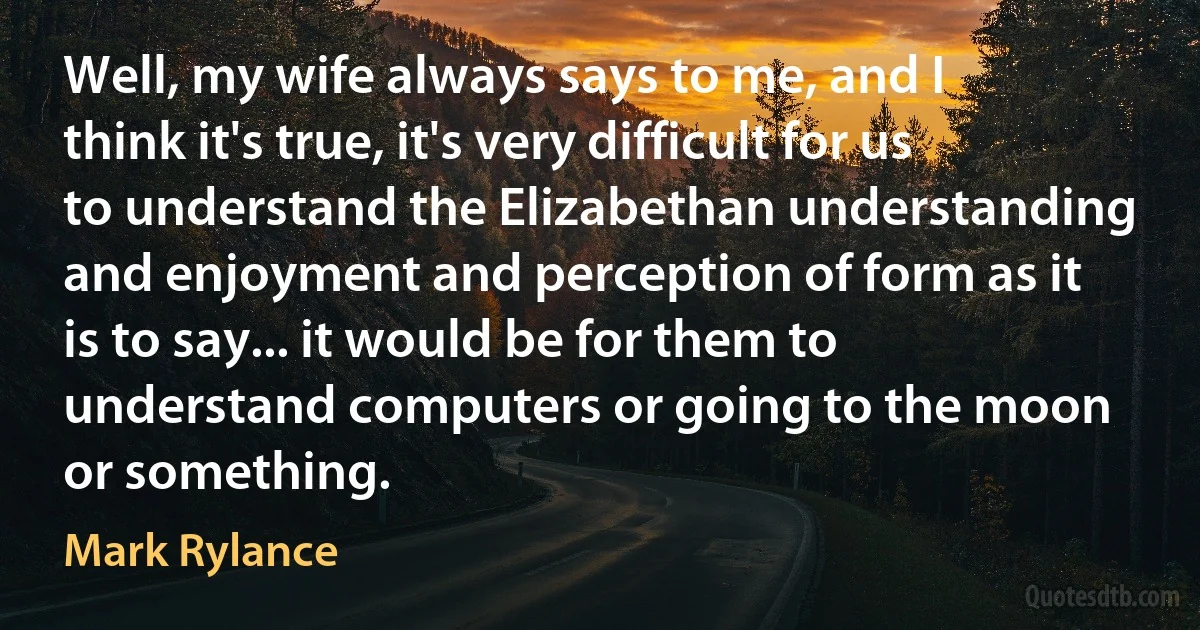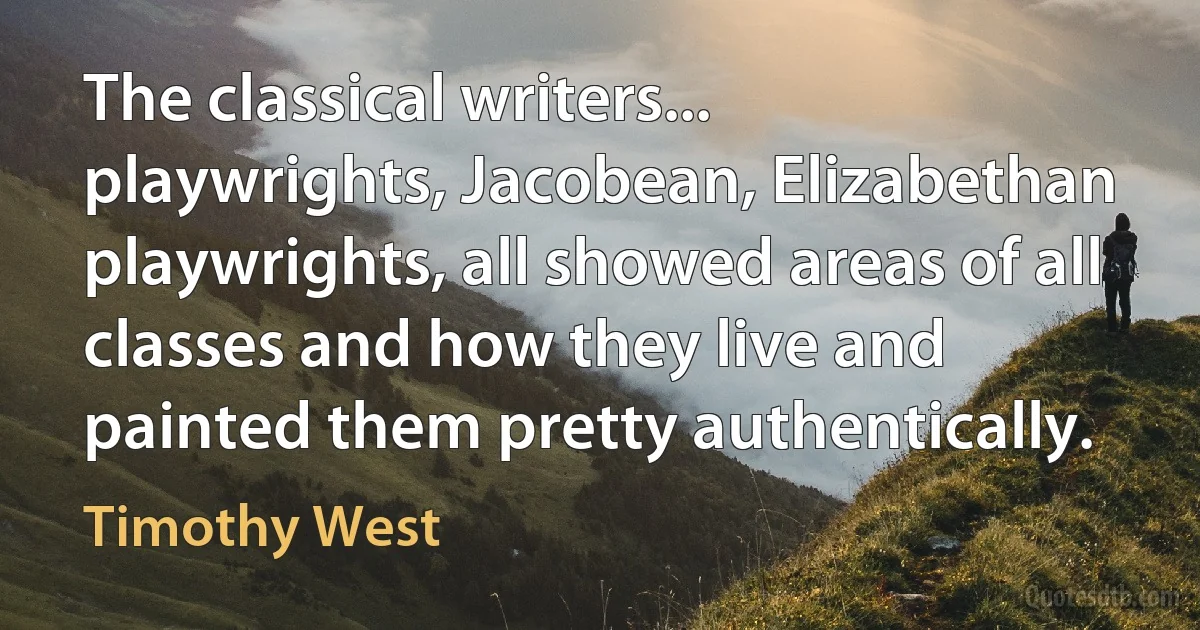Elizabethan Quotes
What Elizabethan playwrights learned from the Greek classics was not theories of insanity, but dramatic practice - that is, madness is a dandy theatrical element. It focuses the audience's attention and increases suspense, since you never know what a mad person may get up to next; and Shakespeare himself makes use of it in many forms. In King Lear, there's a scene in which one man pretending to be mad, another who has really gone mad, and a third who has probably always been a little addled, are brought together for purposes of comparison, irony, pathos, and tour de force acting. In Hamlet, there are two variations - Hamlet himself, who assumes madness, and Ophelia, who really does go winsomely bonkers. In MacBeth, it's Lady MacBeth who snaps.

Margaret Atwood
Ralegh's own circle, which turned Christopher Marlowe into a rationalist, was dominated by... Thomas Hariot. For navigation is dependent on astronomy; it went hand in hand with the new speculations about the world and the solar system... in turn, the voyages of the great navigators inspired the literature of Elizabethan England. The worlds of art and science and the physical world unfolded then together. It was not by accident that the first table of logarithms was published within a few years of the First Folio.

Jacob Bronowski
I've always wanted to go to England; I've always felt a tremendous drawing to England - especially the Elizabethan period. I felt I was familiar with a lot of it - more than what I was familiar with from what I read and studied in school. I went to England. I started driving. I drove to Stonehenge and found that I had been there. It was familiar to me. I went to the tower of London and knew that I had been there. It was more than just feeling vibrations, which a lot of people can do - feel, you know, vibrations of a place that has antiquity screaming through it. It was an irrefutable fact. It was like coming home for me.

Cass Elliot
Print also created new literary forms and altered ideas of literary style. Medieval poetry was conceived for the ear, and each poem had to stand the test of recitation. In addition, medieval audiences were not always interested in the poet himself, since his work was known to them only through the interpretations of minstrels, who frequently rephrased poems to suit their own image and images. The printed page changed these conditions. Slowly, the printed poet came into a new relationship with his reader. He learned not to be so repetitive as his predecessors since a reader could be depended upon to return as often as needed to uncompromised passages. ...After the flowering of dramatic poetry during the Elizabethan Age, the printed page substituted for the theater, and millions of children came to know Shakespeare only through this form.

Neil Postman
Tommy started to play the guitar and sing. He and I had trekked more than once downtown to the Folk Center to hear a barefoot hillbilly woman in a long, faded skirt intone Elizabethan songs and pluck at a dulcimer or to listen, frightened and transported, to a big black Lesbian with a crew cut moan her way through the blues. The People - those brawny, smiling farmers, those plump, wholesome teens bursting out of bib overalls, those toothless ex-cons, those white-eyed dust bowel victims - the People, half-glimpsed in old photos, films and WPA murals, were about to reemerge, we trusted, into history and our lives.

Edmund White
That wild Irish novel (Blackcock's Feather, Maurice Walsh), a wonderful Elizabethan cloak and dagger story, has started me spinning again, those same old threads; the link between begetting and killing, i. e. that sex and death must both be phenomena of fallen Creation...Another odd parallel; the very men who haven't the courage to beget children, to accept fatherhood, are likely to be pacifists on principle, and opponents of the death penalty. What was it that old Afghan, Mahbud Ali, said to Kim: "When I was fifteen I had shot my man and begot my man!".. as representative of God and Christ glorified, consecrated to him, he [the priest] is absolved from these characteristics of fallen humanity, dispensed, raised above them - neither for ascetic reasons, nor on human grounds, but simply because these are the symbols of the Adamite order.

Ida Friederike Görres
Before the famine, which was in the 1840s, that was an emotional turning point... There are various documents showing how the Elizabethan English, in particular, were shocked by Irish displays of affection, by the way women acted toward strangers, walking up and putting their arms around them and kissing them right full on the mouth.

Frank McCourt
Today those who peer into the future want only relief from anxiety. Unable to face the prospect that the cycles of war will continue, they are desperate to find a pattern of improvement in history. It is only natural that believers in reason, lacking any deeper faith and too feeble to tolerate doubt, should turn to the sorcery of numbers. Happily there are some who are ready to assist them. Just as the Elizabethan magus transcribed tables shown to him by angels, the modern scientific scryer deciphers numerical auguries of angels hidden in ourselves.

John N. Gray
Parliament (by which I mean, of course, the elected House of Commons stripped of all irresponsible encumbrances) is the institution which has played the central, liberating role in our history ever since Cromwellian or even Elizabethan times; no comparable institution certainly has shaped so continuously the life and society of any Western European state. It is the authority of our distinctive Parliament which is one of the stakes in the choice now before the people.

Michael Foot


